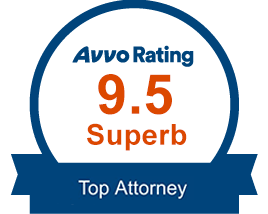Legal Guardianship

We Want To Help You!
Schedule an Appointment at One of Our Four Convenient Hampton Roads Offices Near You!
Estate Planning Special Offers
 Virginia law provides two methods for protecting adults who are no longer capable of handling their personal affairs. Guardianship and conservatorship create relationships between an incapacitated adult and someone granted the legal authority to manage the adult’s affairs.
Virginia law provides two methods for protecting adults who are no longer capable of handling their personal affairs. Guardianship and conservatorship create relationships between an incapacitated adult and someone granted the legal authority to manage the adult’s affairs.
An experienced Hampton Roads attorney at the Law Offices of John W. Lee, P.C., takes the time to evaluate a family’s situation to determine the best course of action to take when steps must be taken to protect an incapacitated family member.
Guardianships are established for any person who is determined to be under a disability. Once a guardianship has been established, the guardian has all authority to act and speak on behalf of the dependant. These are in two forms: adult guardianships and minor guardianships.
The need for a minor guardianship arises when the natural parents of a minor child have either died or become disabled to the extent that they can no longer care for the needs of the child. In these circumstances, the court will look for the most logical person to provide for the child. If the parents established by will or power of attorney that a particular person should serve as the child’s guardian, the court will naturally have a preference to that named individual.
The court still must hear evidence to show that the placement will be in the child’s best interest, but the naming of this individual quickly narrows the field for the court to consider. Without such guidance, the court will first look to the extended family for an appropriate candidate and perhaps to other parties who have served as care providers to the children. In some cases there may be more than one party interested in being the guardian, the court then must decide between the parties as to which would be in the best interest of the child. The court may also appoint an attorney to represent the child’s interest in any litigation that may ensue. This attorney, known as a guardian ad litem or GAL, will attempt to investigate the parties in order to provide recommendations to the judge.
Adult Guardianships
In adult guardianships, an interested party petitions the court to become the guardian. It must be determined first that the individual is in fact incapacitated and unable to handle his or her own daily affairs and then it must be determined that the petitioner is the best person to do this.
The court will appoint a GAL to represent the individual who is potentially incapacitated. The GAL’s role is to insure that the individual is in fact incapacitated. There is always potential for someone to attempt to become the guardian of another for solely selfish purposes. The GAL can present evidence and argue in opposition to a petition for guardianship if he believes that it is not in the person’s best interest. If the GAL determines that it is in the individual’s best interest that the petitioner be granted the guardianship, the court will typically follow that recommendation without much further investigation.
Different Roles of Chesapeake Guardians and Conservators
Legal guardian is the title given to individuals appointed by the Circuit Court to handle the personal affairs of an incapacitated adult. This would include making decisions on behalf of the person in the following matters:
- Support
- Health care
- Personal safety and wellbeing
- Education
- Housing
- Personal care and hygiene
A conservator is also appointed by the Circuit Court, but the person’s duties and responsibilities differ from those of a guardian. Conservators are responsible for managing the finances and assets belonging to an incapacitated adult. They are not responsible for the day-to-day care of the adult.
Guardians and conservators serve in a fiduciary capacity. This means they hold positions of trust and must carry out their duties in good faith and with the best interests of the incapacitated person in mind at all times or risk being held personally liable for any damages that might result.
Determining Whether a Person Is Incapacitated
According to Va. Code Ann. §64.2-2000, incapacitated individuals are those who are incapable of receiving and evaluating information or are incapable of effectively responding to other people or to events happening around them. Displays of poor judgment are not enough for a Circuit Court judge to grant a request for appointment of someone to handle a person’s affairs. A judge must be convinced the individual lacks the ability to do one of the following:
- Unable to take care of his or her own health, safety and other personal needs without the assistance of another person
- Unable to manage his or her property and finances without assistance from another person
Unless it is proven that the adult in question meets the statutory definition of an incapacitated person, the court lacks the authority to appoint someone to act on the individual’s behalf.
Procedure for the Appointment of Conservators or Guardians
The process to appoint conservators or guardians begins by a family member or other interested party filing a petition with the Circuit Court in Newport News, Hampton, Chesapeake or other location in which the incapacitated adult resides. Notice must be given to the person who is the subject of the proceedings.
Virginia law requires the appointment of a guardian ad litem. A guardian ad litem is a lawyer whose job it is to prepare a report offering an opinion about what he or she believes is best for the person, including the powers a judge should give to the individual appointed to assist the incapacitated adult and a recommendation about who should be appointed.
Petitions in conservatorships and guardianships must include a report of an evaluation by a physician, psychologist or other health care professional. The report includes an assessment of the mental or physical condition of the person who is the subject of the court proceedings.
If a judge concludes that the individual is incapacitated and requires the appointment of someone to provide assistance, an order will be issued granting the appointment. The judge will determine from the reports and evidence presented during the proceedings the type of assistance required. This could result in appointment of a conservator, a legal guardian or both.
Duties of Guardians and Conservators
Legal guardians, because they look after the well-being of the incapacitated person, must make regular visits to check on the needs and capabilities of the individual. Guardians must file reports on an annual basis with the social services department for the area in which the incapacitated individual resides. The report covers the individual’s mental and physical condition and recommendations about the person’s needs and how those needs should be met.
Conservators manage the income, expenses and assets of the incapacitated adult. They must file annual reports with the Commissioner of Accounts accounting for how the person’s money and property have been managed.
Terminating Guardianship and Conservatorship
The following are the three common ways in which the appointment of a guardian or a conservator can be terminated:
- Death of the incapacitated individual
- Incapacitated adult no longer requires assistance
- End of duration for which guardians or conservators were appointed
A petition must be filed with the Circuit Court by the incapacitated person to terminate an appointment based upon the individual no longer meeting the statutory definition of a person in need of assistance. It is up to a judge to determine if the individual has the capability of handling financial and personal affairs.
Alternatives to Appointment of Guardians or Conservators
Court proceedings for appointment of legal guardians and conservators take away an adult’s rights, so they should only be used if no other option exists. A consultation with a Hampton Roads attorney can provide alternatives to guardianship proceedings.
Durable general powers of attorney offer an alternative to court proceedings when a person is unable to handle financial and business decisions. A durable general power of attorney is a legal document an attorney prepares in which the principal, the individual signing it, designates an agent to make act in place of the principal. The powers given to the agent can be as broad or as limited as the principal wishes.
It is important to ensure the general power of attorney is durable to avoid needing guardians or conservators. “Durable” means the document survives the incapacity of the principal. A general power of attorney is invalid upon the principal being declared incapacitated, but a durable general power of attorney remains in effect.
Durable general powers of attorney will not help when medical decisions must be made for someone who is incapacitated. For this a person would need an advance directive for health care in which an agent is designated to make health care decisions when the principal is incapable of making them. As with a durable power of attorney, advance directives must be prepared and signed when the principal is competent, so making arrangements in advance with an attorney is essential.
Contact a Virginia Beach Legal Guardianship Lawyer Today
The attorneys at the Hampton Law Offices of John W. Lee, P.C., provide skilled legal representation in court actions to appoint a legal guardian and in conservatorship proceedings throughout the commonwealth. They also offer innovative advice and guidance with alternatives to avoid costly court proceedings.
We have four convenient Hampton Roads locations in Virginia Beach, Hampton, Chesapeake and Newport News servicing the surrounding cities of Norfolk, Portsmouth, Suffolk, Smithfield, Poquoson and Williamsburg and the York, James City and Gloucester counties. Find out more by calling (757) 896-0868 to schedule a free initial consultation.
